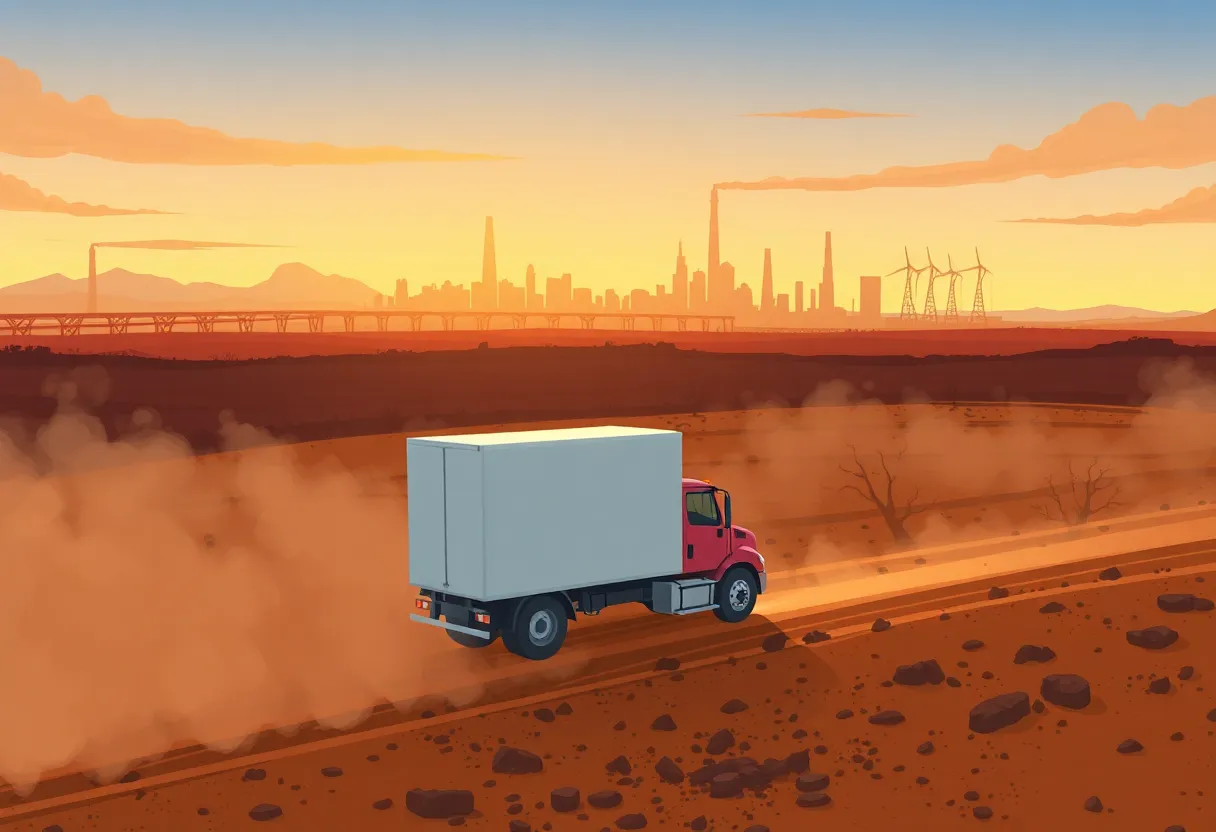News Summary
The House of Representatives has voted to overturn California’s clean truck emissions standards, challenging the Biden administration’s regulations intended to reduce pollution. Utilizing the Congressional Review Act, the House passed two measures aimed at increasing electric trucks and limiting nitrogen oxide emissions, with some bipartisan support. Critics argue this decision undermines established congressional protocols and sets a dangerous precedent. The trucking industry faces increased costs due to emissions regulations, while lawmakers continue to debate California’s authority to set vehicle pollution standards affecting both state and national levels.
California – In a significant development, the House of Representatives voted to overturn California’s clean truck emissions standards, a move that contradicts findings from the nonpartisan Government Accountability Office (GAO). This vote aims to reverse the Biden administration’s approval of regulations designed to reduce pollution and greenhouse gas emissions from trucks across the state. Utilizing the Congressional Review Act (CRA), this decision allows Congress to disapprove of federal regulations with only a simple majority, bypassing the typical Senate filibuster threshold of 60 votes.
Two key measures were passed by the House in this vote. The first measure, focused on increasing the number of electric trucks, received a vote of 231 in favor to 191 against. The second measure, which sought to limit nitrogen oxide emissions, passed with a vote of 225 to 196. Notably, a few Democrats joined the Republicans in voting for these resolutions, with thirteen Democrats supporting the first resolution and ten backing the second. The only Republican to oppose both measures was Rep. Brian Fitzpatrick of Pennsylvania.
This congressional action comes in the wake of the GAO’s conclusion that the Environmental Protection Agency (EPA) granted a waiver to California’s clean truck rules rather than imposing a regulation, thus arguing that these rules are not subject to the CRA. Critics, including members of the Coalition for Sensible Safeguards, have labeled the House’s decision as a breach of established congressional protocols, suggesting it sets a dangerous precedent.
Republicans have expressed their support for the vote, claiming that the imposition of California’s stringent standards would adversely affect the trucking industry and result in higher costs for consumers. Rep. John James from Michigan, one of the resolution’s sponsors, has been vocal about the need to roll back California’s regulations. Meanwhile, Senate Republicans appear poised to pursue similar challenges to the regulations, yet they face the same GAO findings that recently emerged.
The potential enactment of these resolutions into law might invite legal disputes, placing lawmakers and regulatory bodies in a “uncharted territory.” Following the House’s decision, a vote on California’s gas-powered vehicle phaseout was postponed, signaling ongoing debates concerning the state’s regulatory capacities.
California’s authority to set its vehicle pollution standards originates from a clause in the Clean Air Act, enabling states to implement stricter regulations in light of historical air quality issues. This is notable given that over 10% of the U.S. population resides in California, significantly influencing both the automotive and trucking markets across the nation. Furthermore, many other states adopt California’s rules, amplifying their effects nationally.
The timing of the House vote is crucial, as it follows announcements by Volvo and Mack Trucks, indicating their commitment to comply with California’s stringent diesel engine standards. This compliance underscores the importance of California’s emissions policies. However, companies such as the American Trucking Associations have criticized California’s ability to set such policies, arguing that it undermines the uniformity of national regulations.
The consequences of these emissions regulations have been profound, with reports indicating that compliance has led to increased costs for trucking companies, adversely affecting their ability to acquire new vehicles. Meanwhile, there are bills currently in the U.S. Senate aimed at amending the Clean Air Act. These proposed legislations include the Preserving Choice in Vehicle Purchases Act, which seeks to limit EPA’s power to issue waivers allowing states to enforce stricter regulations, and the Stop CARB Act, intended to revoke California’s Clean Air Act exemptions altogether.
As the debate continues over California’s emissions standards and their national implications, the House’s recent voting actions indicate a pivotal moment that may reshape the regulatory landscape in the trucking industry and potentially across broader environmental policy.
Deeper Dive: News & Info About This Topic
- The Hill: House Votes on California Clean Truck Rules
- Wikipedia: Clean Air Act
- New York Times: House Votes to Repeal California’s Clean Truck Policies
- Google Search: California clean truck emissions regulations
- Reuters: US House Votes to Rescind California Heavy-Duty Truck Rules
- Google Scholar: California trucking regulations
- CCJ Digital: US House Revokes California’s Authority to Regulate Truck Emissions
- Encyclopedia Britannica: Environmental Policy
- The Hill: House Votes to Axe California Clean Truck Rules
- Google News: California emissions regulations

Author: STAFF HERE MISSION VIEJO WRITER
The MISSION VIEJO STAFF WRITER represents the experienced team at HEREMissionViejo.com, your go-to source for actionable local news and information in Mission Viejo, Orange County, and beyond. Specializing in "news you can use," we cover essential topics like product reviews for personal and business needs, local business directories, politics, real estate trends, neighborhood insights, and state news affecting the area—with deep expertise drawn from years of dedicated reporting and strong community input, including local press releases and business updates. We deliver top reporting on high-value events such as Oso Fit 5K Fun Run and Community Health Fair, Walk Against Drugs & Community Fair, and National Night Out. Our coverage extends to key organizations like the Mission Viejo Chamber of Commerce and Providence Mission Hospital Mission Viejo, plus leading businesses in retail and education that power the local economy such as The Shops at Mission Viejo, Capistrano Unified School District, and Amazon Delivery Station. As part of the broader HERE network, including HEREAnaheim.com, HEREBeverlyHills.com, HERECostaMesa.com, HERECoronado.com, HEREHollywood.com, HEREHuntingtonBeach.com, HERELongBeach.com, HERELosAngeles.com, HERESanDiego.com, and HERESantaAna.com, we provide comprehensive, credible insights into California's dynamic landscape.


